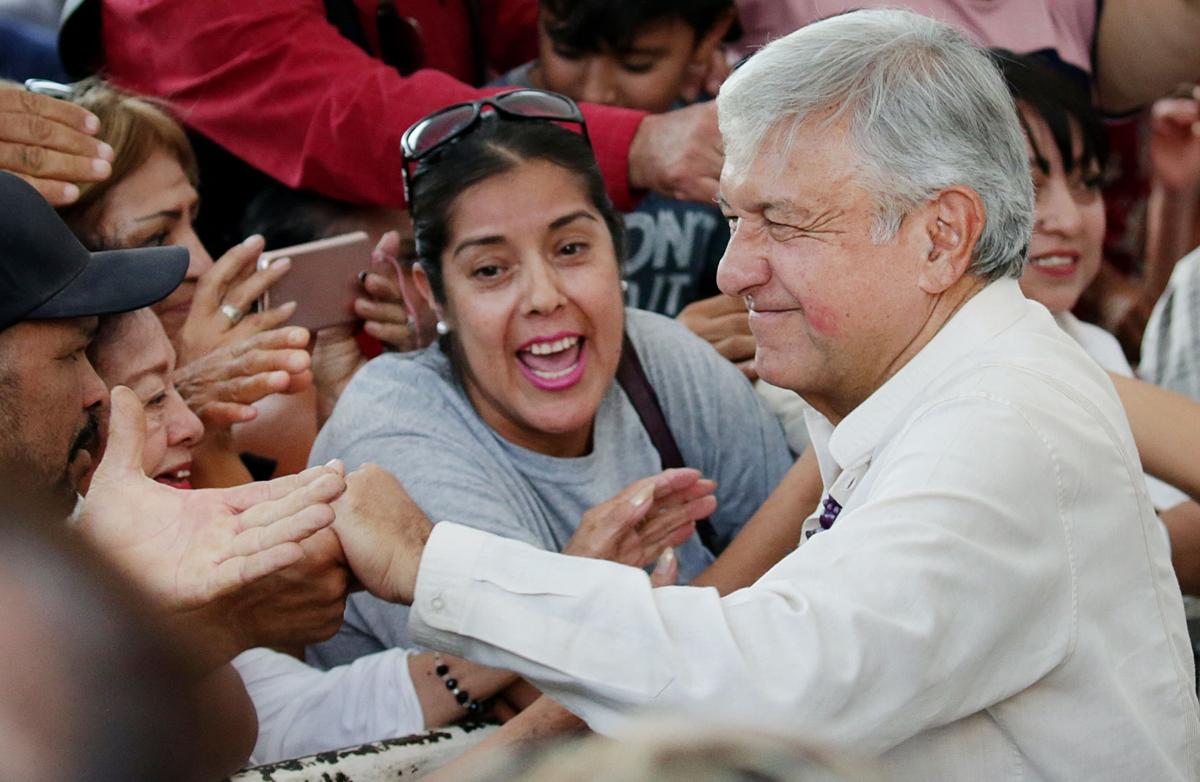Mexican President Andrés Manuel López Obrador is expected to formally apologize to the eight leaders of the traditional Yaqui pueblos in Sonora for injustices — among those being the denial of their land and water rights — and a history of Yaqui genocide by the Mexican government dating back centuries.
The president and the Yaqui leaders are also expected to sign a decree, the Yaqui Justice Plan, that includes giving back traditional lands and water rights to the Yaquis. The event will take place during a summit in Vicam, Sonora, on Tuesday, Sept. 28, during an afternoon ceremony.
Tucson’s Pascua Yaqui Tribe Chairman Peter S. Yucupicio and members of the tribal council were invited to the ceremony, which is being organized by Mexico’s National Institute of Indigenous Peoples. The institute was created by López Obrador to right the wrongs the government has carried out among Mexico’s indigenous. The president has given a series of apologies to indigenous people in recent ceremonies since the 500-year anniversary of Spain’s conquest of the Aztec empire in 1521.
“I thank God that the president is acknowledging the injustices that have gone on with our Yaqui people in Sonora,” said Yucupicio. “For us, it is humbling and an honor to be invited by the president and the village leaders to be there for the signing of the decree.”
“We have relatives here and in Sonora,” said the chairman, explaining that tribal members travel back and forth across the border and have always been concerned about land and water rights confiscated by the government, along with education and health issues, and living conditions among Yaquis in the traditional pueblos.
Yucupicio said in the 19th century, Yaquis were enslaved and many died while they were taken from their lands and forced to work on plantations in Oaxaca and the Yucatán. He said Yaquis lived in Arizona from the Gila River down south to Sonora as early as the 1600s, and in the 1900s, more Yaquis came to Arizona because they were fleeing oppression and death at the hands of the Mexican army.
“Yaquis living in the original pueblos have been discriminated for decades, and now the government has agreed to return the original lands and water rights to the Yaquis, so they can develop their communities,” said Saúl Vicente Vázquez, international director of the National Institute of Indigenous Peoples.
Mexico’s federal government created a presidential commission to carry out the Yaqui Justice Plan. The work began two years ago through the commission, institute and meetings with Yaqui leaders to right the wrongs committed to Yaquis, including recognizing land and water rights for the eight Yaqui pueblos in southern Sonora that were acknowledged by President Lázaro Cárdenas in 1937 and 1940. The return of the original lands and water rights from the government to the Yaquis that was recognized by Cárdenas was not carried out, and the Yaquis’ rights were whittled away over decades, said Vázquez.
Under the water rights, the Yaqui pueblos had the right to 50% of the water of the Yaqui River held in a dam for their agricultural use. The Yaquis also will operate an irrigation district and administer the water to its lands, said Vázquez. Plans for the construction of an aqueduct also is included to carry potable water to the Yaqui communities. The aqueduct is expected to be completed in two years. The government also will build a plant to treat contaminated water in the communities. The water is polluted with pesticides used by agricultural businesses that have leased land for farming from the Yaquis, said Vázquez.
He said the Yaqui population in the eight pueblos is 45,000, and generations have and continue to drink polluted water that has led to birth defects in children. Families in the pueblos make a living by farming and fishing.
“We have fought for the pueblos, and now the president has worked for the transformation of the justice decree. We are happy and proud of all the work that has been done, and we hope the justice decree can be a foundation for other plans used by indigenous communities in other countries,” said Vázquez.
Vázquez also sits on the board of the International Indian Treaty Council, which is based in Tucson. The council is comprised of indigenous people from the Americas and other parts of the world who work for sovereignty, self-determination and rights of tribes. The council began submitting cases related to the denial of land and water rights for the Yaqui pueblos since the 1990s and presented its findings to numerous United Nations bodies, said Andrea Carmen, executive director of the treaty council.





